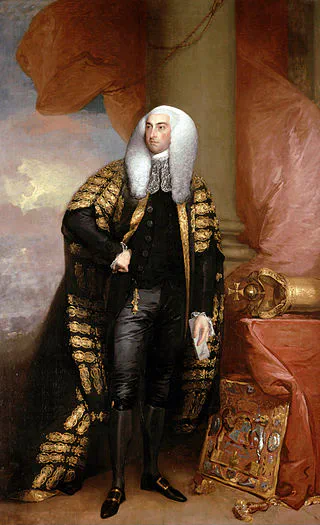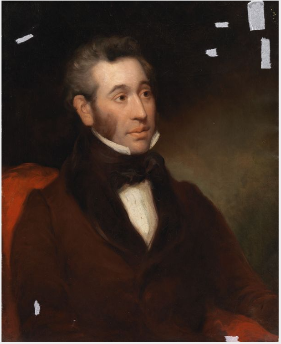- April 19, 1798
John FitzGibbon, 1st Earl of Clare PC (Ire) (1748 – 28 January 1802) was Attorney-General for Ireland from 1783 to 1789 and Lord Chancellor of Ireland from 1789 to 1802.
He remains a deeply controversial figure in Irish history, being described variously as an old fashioned anti-Catholic Whig political party hardliner and an early advocate of the Act of Union between Ireland and Great Britain (which finally happened in 1801, shortly before his death). He is said to have been an early and extremely militant opponent of Catholic Emancipation (the end of religious persecution, and the limited relaxation of both the religious discrimination and civil disabilities placed upon Catholics throughout the British Isles and the British Empire). The Earl may also have been the first person to suggest to King George III that granting Royal Assent to any form of Catholic Emancipation would violate his coronation oath.
He was educated at Trinity College Dublin and Christ Church, Oxford.
The Hist
The College Historical Society (CHS) – popularly referred to as The Hist – is a debating society at Trinity College Dublin. It was established within the college in 1770 and was inspired by the club formed by the philosopher Edmund Burke during his own time in Trinity in 1747. It holds the Guinness World Record as the “world’s oldest student society”
Theobald Wolfe Tone, later leader of the United Irishmen, was elected auditor in 1785, and Thomas Addis Emmet was a member of the committee. The society was briefly expelled from the college in 1794, but readmitted on the condition that “No question of modern politics shall be debated”.
In 1797, the poet Thomas Moore and the nationalist Robert Emmet were elected as members. Eight members of The Hist were expelled in 1798 in the run-up to the Rebellion, and a motion was later carried condemning the rebellion, against their former auditor.

 ← John Banim, writer, is born in Kilkenny
← John Banim, writer, is born in Kilkenny
 Rebels defeat small force of Yeomanry at Ballraheen Hill →
Rebels defeat small force of Yeomanry at Ballraheen Hill →